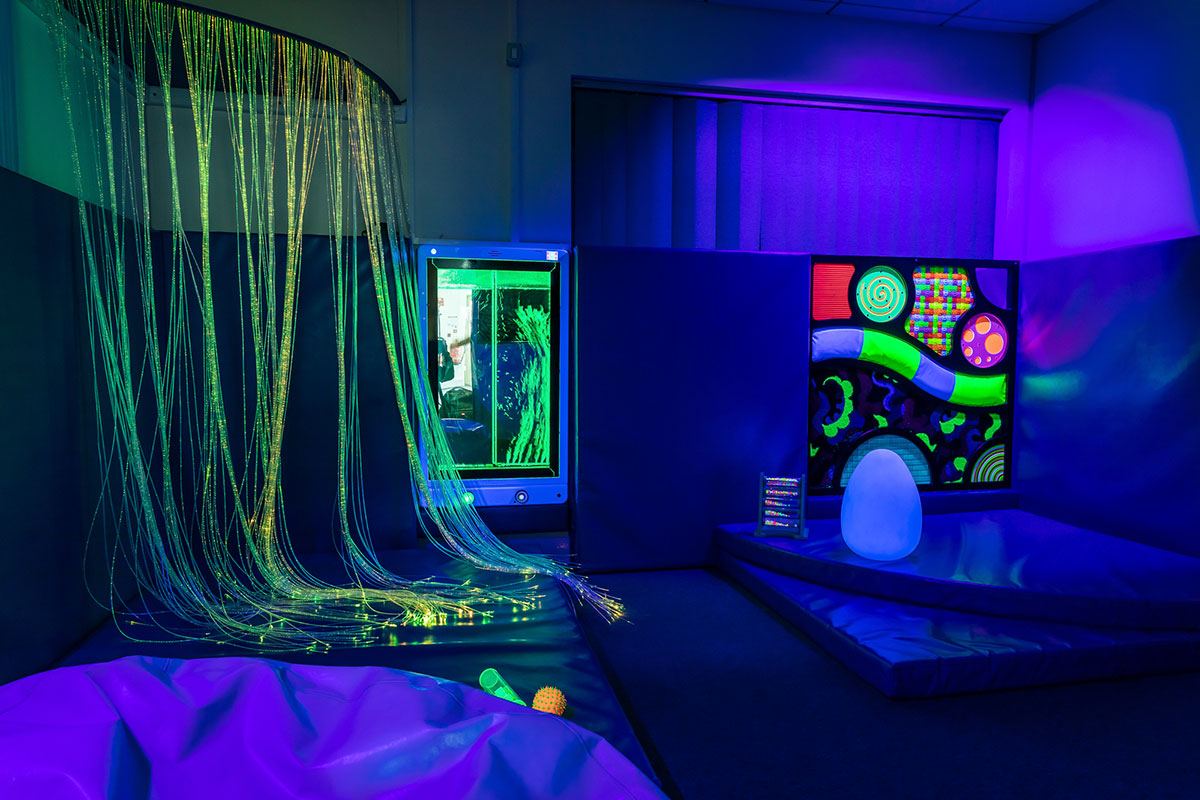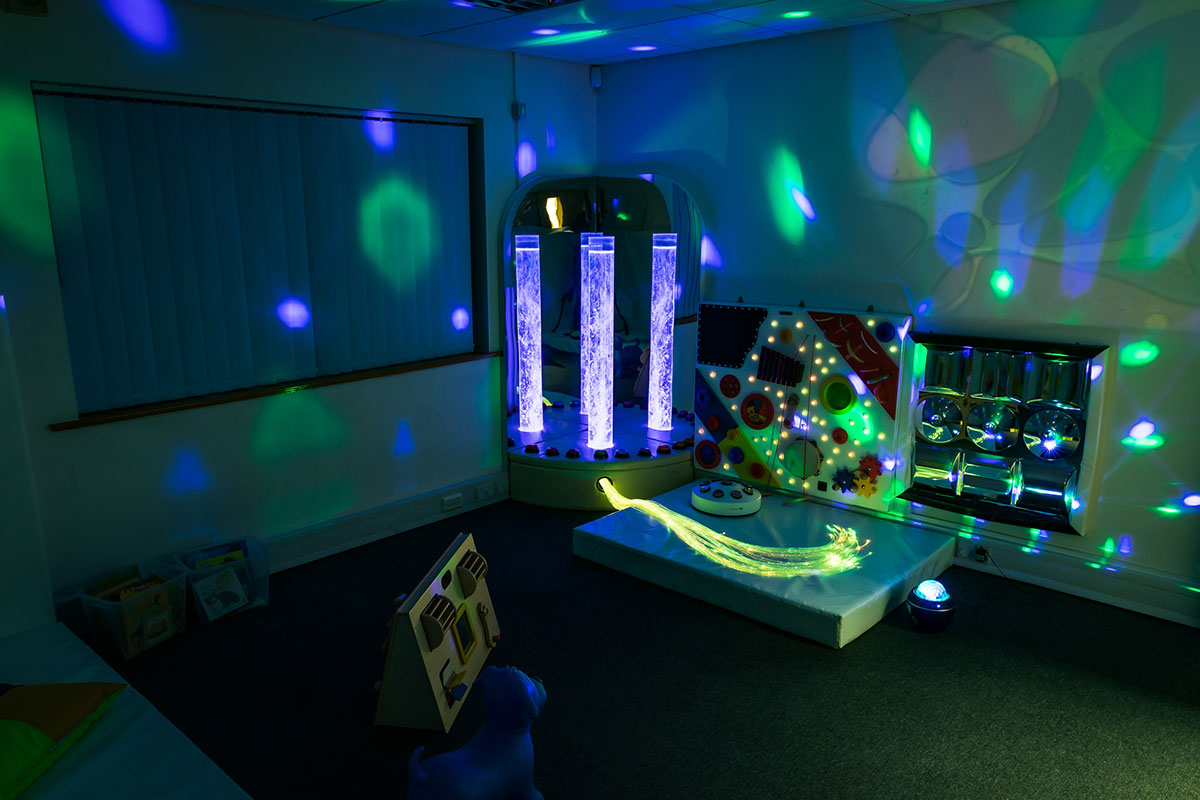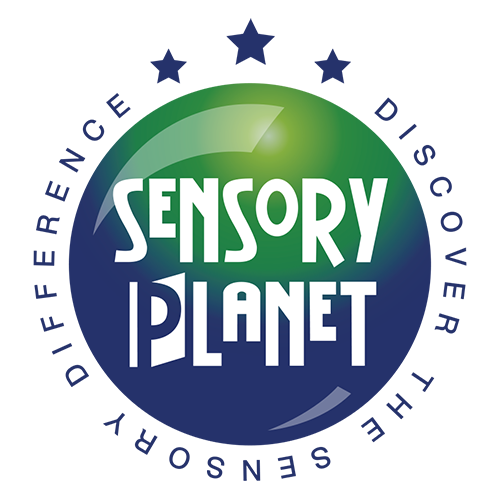The Importance of Sensory Integration on Dementia and Older Aged Clients
Developed by an occupational therapist in the early 1970s, the term ‘sensory integration’ describes:
“The neurological process that organises sensation from one’s own body and from the environment and makes it possible to use the body effectively within [this] environment”.
It affects how you perceive and interact with your surroundings, something which unfortunately deteriorates over time with dementia. Yet, sensory integration for the elderly (including those with a diagnosis) can be encouraged by Snoezelen therapy. Learn how our interactive dementia activities may benefit your loved one’s health, motor skills and general well-being.
Sensory Integration and Dementia

Dementia is a neurological condition with a progressive group of symptoms that affects 1 in 14 people over the age of 65. Unfortunately, there is no way to reverse the disease, as the onset of dementia produces physical changes in the brain.
This leads to cognitive decline, creating sensory impairments such as:
- Poor balance
- Difficulties judging distances
- Reduced communication skills.
If the signals sent from the senses to the brain are too strong or too weak, those with dementia will struggle with everyday tasks. Impaired sensory integration can also impact a person’s mental health given the anxiety and sense of isolation caused by dementia. Know that our Snoezelen therapy is here to support them (and you) by offering respite within our multisensory rooms.
Sensory Disorders and Everyday Life
Sensory integration enables us to receive and organise information coming from our senses. When this cognitive processing starts to decline (as with dementia), it can affect one’s sight, speech, hearing, smell and taste.
These three senses can also start to compromise:
- Vestibular – governing coordination, movement and balance
- Interoception – internal signals such as hunger and emotions
- Proprioception – how they are aware of their body within a space.
This is why many people diagnosed with dementia require supervision or assistance getting dressed, eating and visiting the toilet.
Distressing Behaviour
These cognitive changes produce new behaviours, which we appreciate is one of the most upsetting aspects for family members. This includes wandering off, aggression and restlessness. It is important to remember that none are a reflection of the person. They’re solely symptoms of dementia.
Sensory integration relies on the senses being stimulated. A Journal of Clinical Nursing review found that the majority of sensory stimulation improved Alzheimer’s patients’ quality of life, whilst non-medicated approaches including sessions with fibre optic lighting, projectors and music have soothing effects for behavioural issues in Alzheimer’s (find out more here).
Our supportive Snoezelen rooms in Knottingley offer you these health and social care resources within a safe space.
Memory and Recall

We understand families will become alarmed once dementia affects their relative’s memory, as with Alzheimer’s disease and Frontotemporal dementia. Yet, research has shown that “sensory stimulation can effectively improve the cognition and memory” in Alzheimer’s patients.
Whilst not a cure, Snoezelen can be effective because it doesn’t require them to recall a certain event (episodic memory), so is suitable for people living with mild to severe dementia.
Restricted Communication
Sensory integration also influences how we communicate in everyday life. If someone you know has dementia, they may be feeling isolated or start to avoid social situations. Naturally, this can affect their confidence and identity to the point where they stop their usual routine altogether.
However, the interactive nature of Snoezelen spaces like Sensory Planet gives them non-verbal ways to communicate with others and influence their surroundings. Empowering our visitors, multisensory rooms can “prepare the person for engagement in everyday activity” due to stimulating the brain. Having a reason to leave their home also supports their mental health.
Hire our sensory rooms


Whilst receiving a diagnosis is extremely upsetting for individuals and their families, there is evidence to suggest that multisensory environments can benefit those with dementia. Contact us or call 01709 919036 (option 2) to discover how we can support the person you care for.
